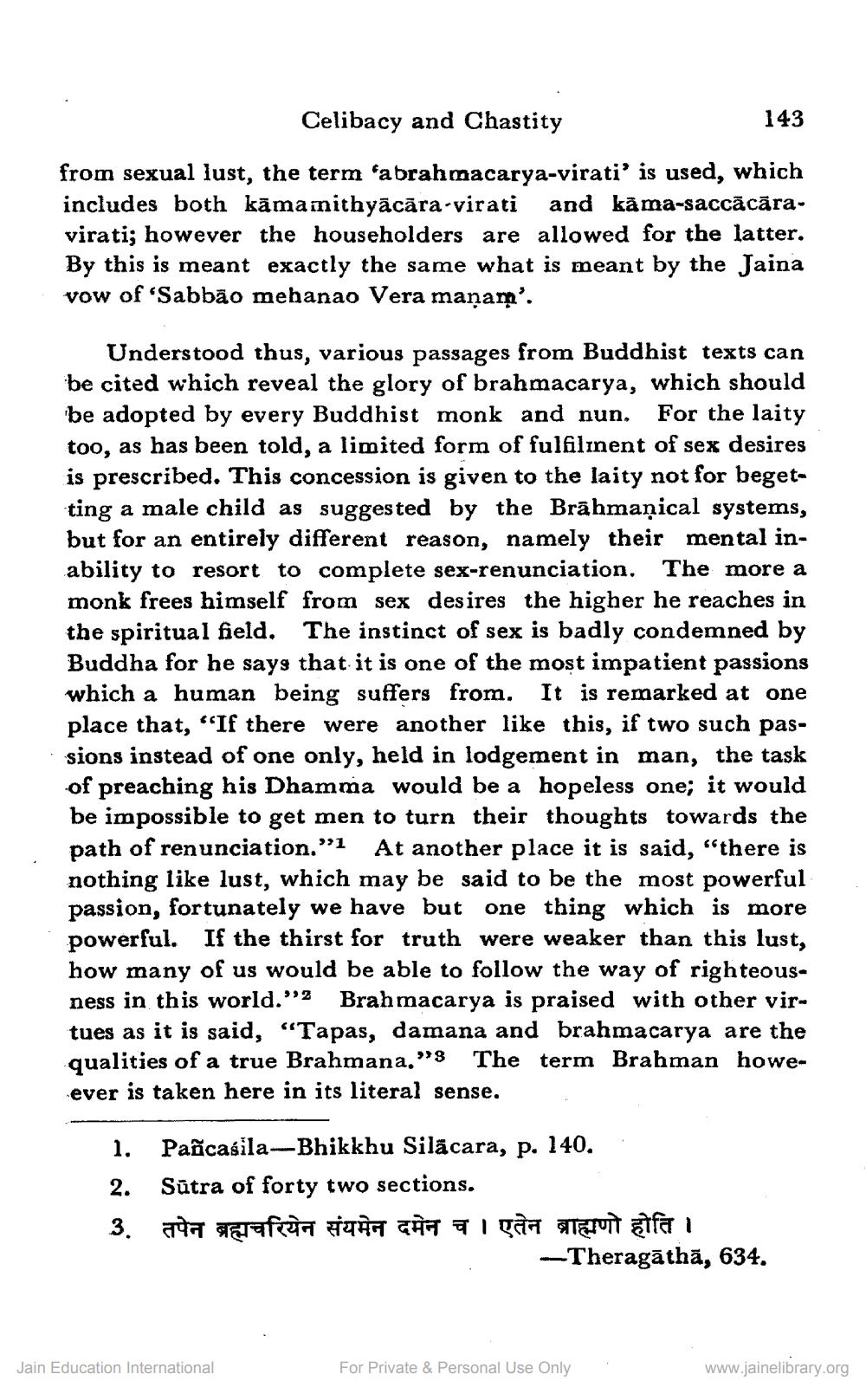________________
Celibacy and Chastity
from sexual lust, the term 'abrahmacarya-virati' is used, which includes both kāmamithyācāra virati and kama-saccācāravirati; however the householders are allowed for the latter. By this is meant exactly the same what is meant by the Jaina vow of 'Sabbão mehanao Vera maṇam'.
Understood thus, various passages from Buddhist texts can be cited which reveal the glory of brahmacarya, which should be adopted by every Buddhist monk and nun. For the laity too, as has been told, a limited form of fulfilment of sex desires is prescribed. This concession is given to the laity not for begetting a male child as suggested by the Brāhmaṇical systems, but for an entirely different reason, namely their mental inability to resort to complete sex-renunciation. The more a monk frees himself from sex desires the higher he reaches in the spiritual field. The instinct of sex is badly condemned by Buddha for he says that it is one of the most impatient passions which a human being suffers from. It is remarked at one place that, "If there were another like this, if two such passions instead of one only, held in lodgement in man, the task of preaching his Dhamma would be a hopeless one; it would be impossible to get men to turn their thoughts towards the path of renunciation."1 At another place it is said, "there is nothing like lust, which may be said to be the most powerful passion, fortunately we have but one thing which is more powerful. If the thirst for truth were weaker than this lust, how many of us would be able to follow the way of righteousness in this world."2 Brahmacarya is praised with other virtues as it is said, "Tapas, damana and brahmacarya are the qualities of a true Brahmana."s The term Brahman howeever is taken here in its literal sense.
Pancasila-Bhikkhu Silācara, p. 140.
1.
2. Sutra of forty two sections.
3. तपेन ब्रह्मचरियेन संयमेन दमेन च । एतेन ब्राह्मणो होति ।
Jain Education International
143
-Theragāthā, 634.
For Private & Personal Use Only
www.jainelibrary.org




